Plan the year with three overarching goals for a group or for an individual child.
Whether you’re a home educator, teacher, therapist, or support staff, you might find that starting with three main goals for the year will give you additional clarity.
Even though we’re technically unschoolers, I like to start each year with three main things to focus on throughout the year. This is helpful for you, too, if you prefer some structure within the unstructured.
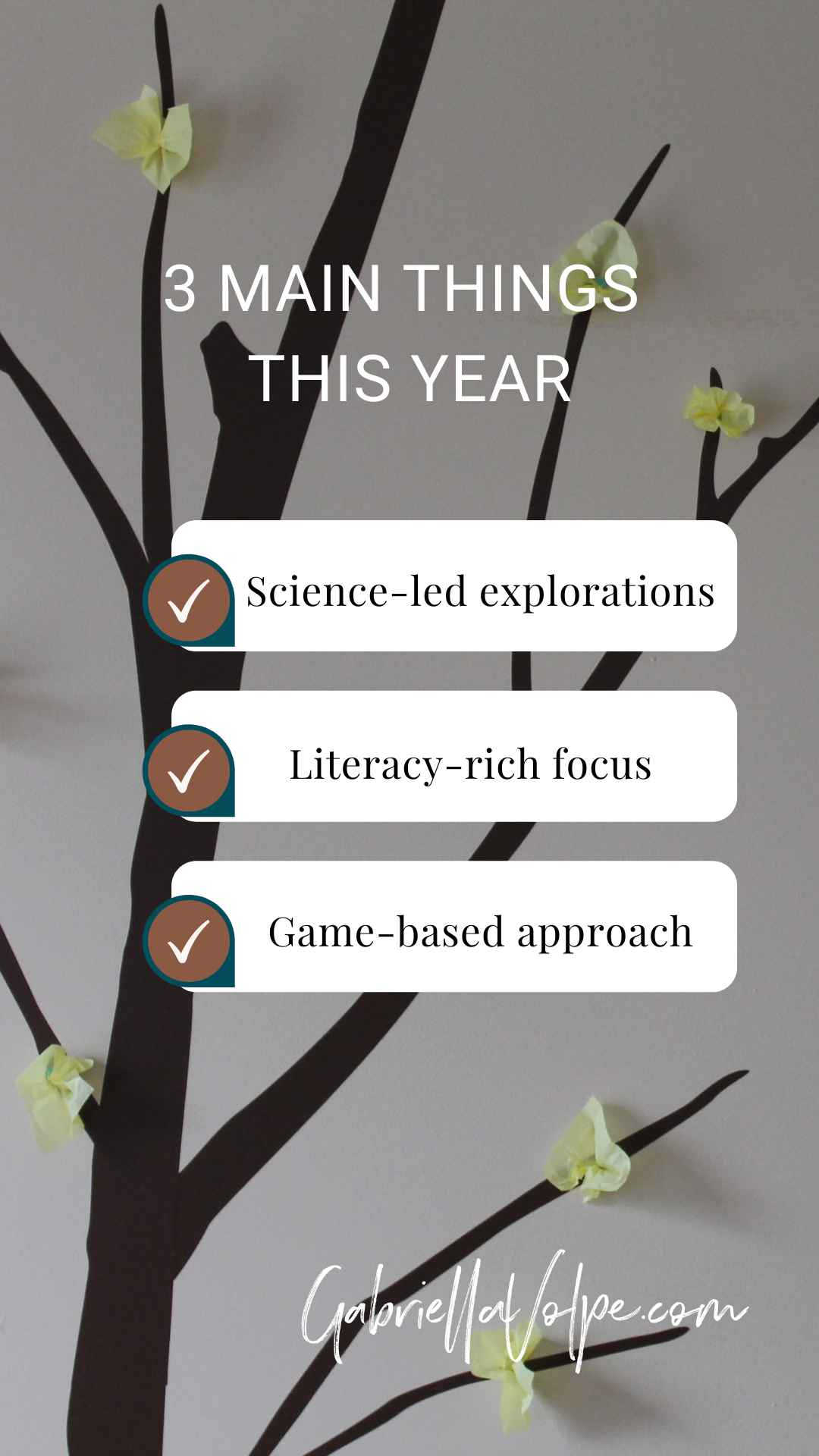
I posted this template on Instagram. You can find it here under “Planning 2” in the highlights.
Yearly goal-setting example
Let’s look at how I set this up for my son. What I share below is based on observations from the previous year, entirely led by my son.
1. Science-led explorations
I noticed a lot of my son’s interests revolved around science:
- Doors and doorknobs (simple machines)
- Kites (physics)
- Owls, bugs (animal science)
- Fans and velocity (physics)
- Fans and temperature (earth science)
- Elevators (simple machines
- Balloons (chemistry)
- Water (life science and chemistry)
- Washing hands (health/biology)
- Flashlights (energy)
- Etc.
Which subjects/disciplines or competencies are tackled within this overarching goal?
- Science
- Math
- Language and Communication
- ICT
- Arts
- Safety
- Personal Care and Well-Being
- Life in Society
- Home and Community Life
2. Literacy-rich focus
With my son being older now and having interests that go beyond barn animals, shapes, or colors, it’s important I find books that are both engaging and at his developmental level.
Most of the topics my son likes are not covered in traditional books that are at his reading level, so I planned to use hi-lo (high interest, low reading level) books.
Which subjects/disciplines or competencies are tackled within this overarching goal?
- Language and Communication
- ICT
- Life in Society
- Home and Community Life
3. Game-based approach
My son has never played with toys for their intended purpose. For years, I had that as a goal on our yearly plans. Now that he’s older, I’m not even sure it’s necessary for him to learn to play with a car set or figurines.
How does my son continue to enjoy social situations with peers or family members? Board/table or physical games are ideal for older kids, especially as adaptations are possible on a small scale.
Which subjects/disciplines or competencies are tackled within this overarching goal?
-
- Math
- Language and Communication
- Science
- Physical Education
- ICT
- Life in Society
- Home and Community Life
- Leisure
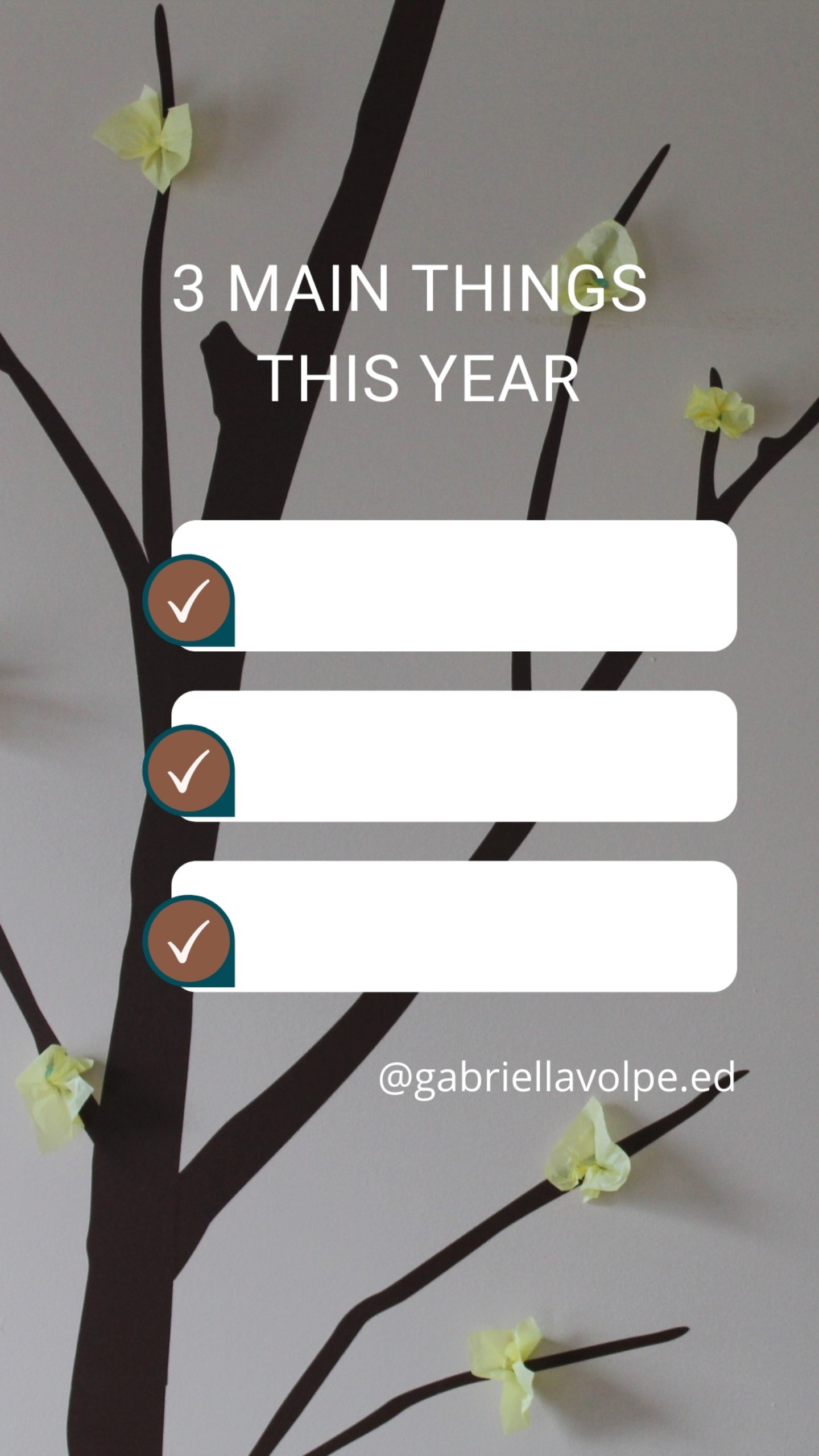
I posted this template on Instagram stories. Share your three main things for the year by taking a screenshot, filling in the template, and posting it in your stories. Don’t forget to tag me @gabriellavolpe.ed Find the template in my Instagram highlights here.
The plan needs to be fluid to be neurodiversity affirming
It’s important to note that none of my brainstorming is forced or formally taught. I offer the ideas as an invitation and see where it goes. I also don’t spend too much time preparing activities unless I see a definite interest. Always follow the child’s lead.
Summary of goals
Our three main goals for this year are to engage in science-led explorations, maintain a literacy-rich focus, and approach much of what we do through games. Having these goals in mind helps me streamline materials, resources, and general learning approaches. Notice that I haven’t outlined lessons or activities. These are broad goals for the year.
Important note: Be sure the goals are neurodiversity- and disability-affirming. The idea is to create goals that reduce or remove barriers to learning, not to “fix” or change the child. Further, goals should always be set with and not for the child.
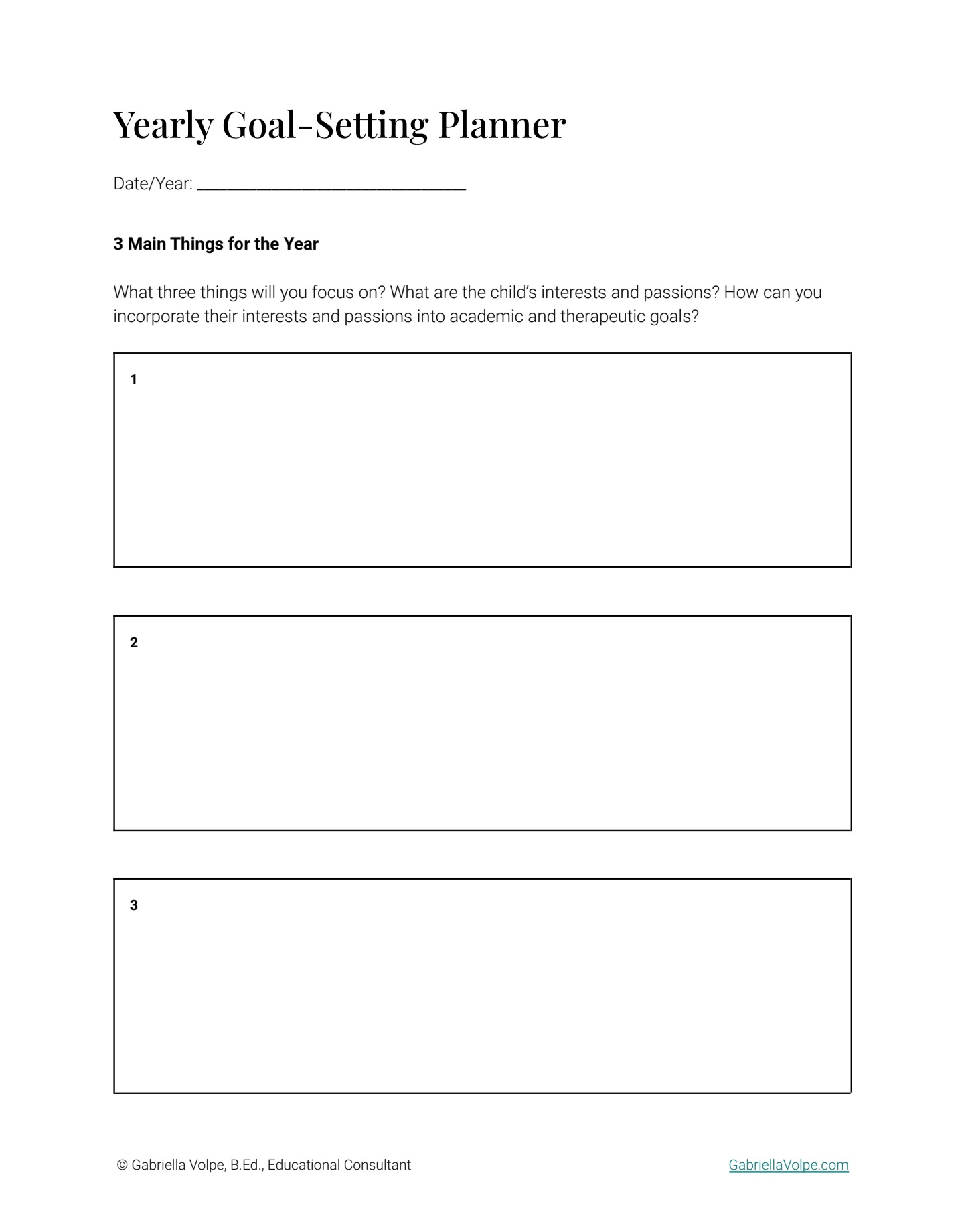
I created this FREE printable planner for you (link found at the end of this article). Brainstorm the three overarching goals in one handy spot.
Getting started with setting yearly goals
A great way to get non-verbal learners to advocate for what they want to explore (instead of planning the year for them) is to observe.
- What are the child’s interests?
- What does the child do when exploring their environment?
- What do they listen to?
- What do they like to watch?
- What kinds of books do they prefer?
- Etc.
Children have a way of letting their interests be known. Uncover them!
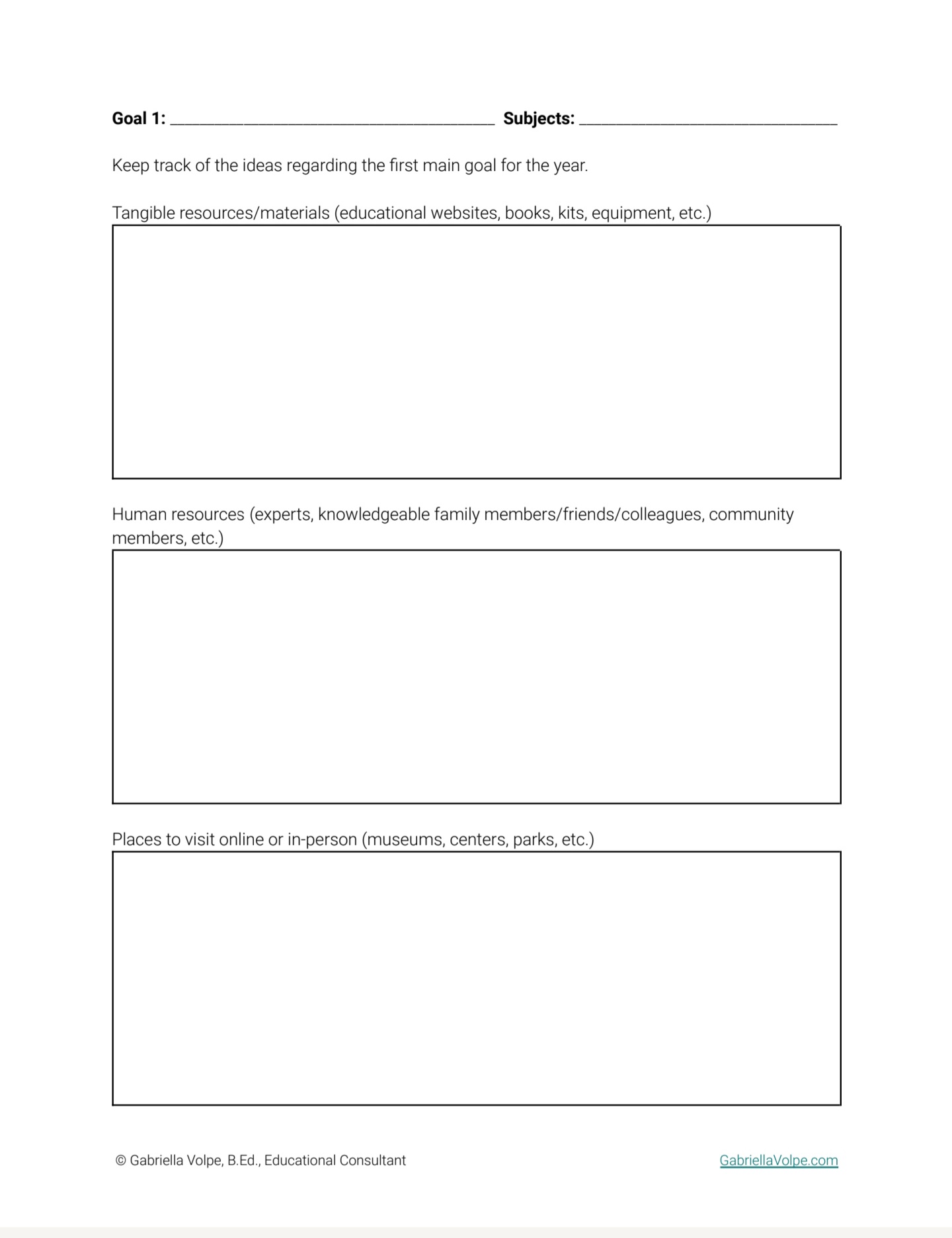
Brainstorm ideas for tangible resources, human resources, and places to visit. Link to free printable planner found at the end of this article.
Brainstorming details of the goals
As ideas come to you, track them on these sheets provided for you (find the link to this free planner at the end of this article).
Tangible resources
- Educational websites
- Books
- Kits
- Equipment
- Etc.
Human resources
- Experts
- Knowledgable and skilled family members, friends, colleagues
- Community members
- Etc.
Places to visit online or in-person
- Museums
- Centers
- Parks
- Etc.
Additional resources
- Podcasts,
- Online classes
- Self-paced courses
- Etc.
Methodology/Process
- What approaches to learning will you explore?
Notes
- Add anything you want to remember for this year or the next
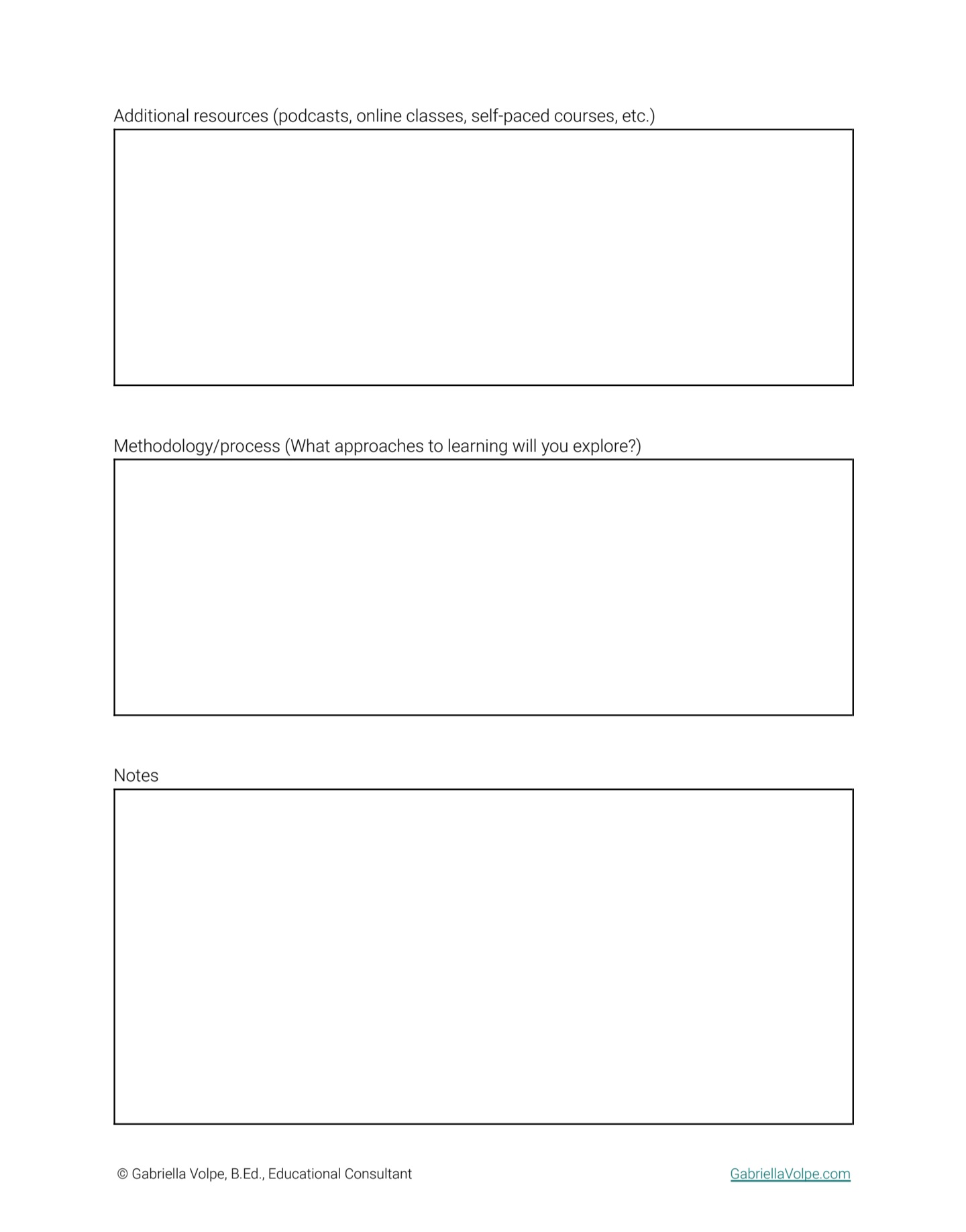
Brainstorm additional resources and methodology/processes you will explore. There’s also a space for notes to remember for next year. Link to free printable planner found at the end of this article.
Break down the ideas into monthly or quarterly plans
Finally, take the ideas and plot them on a calendar. Are there seasons that work better for a concept, theme, or idea? Are there holidays or family events that can nurture the goals?
Having a broad-scale view allows you to collect resources or contact experts ahead of time.
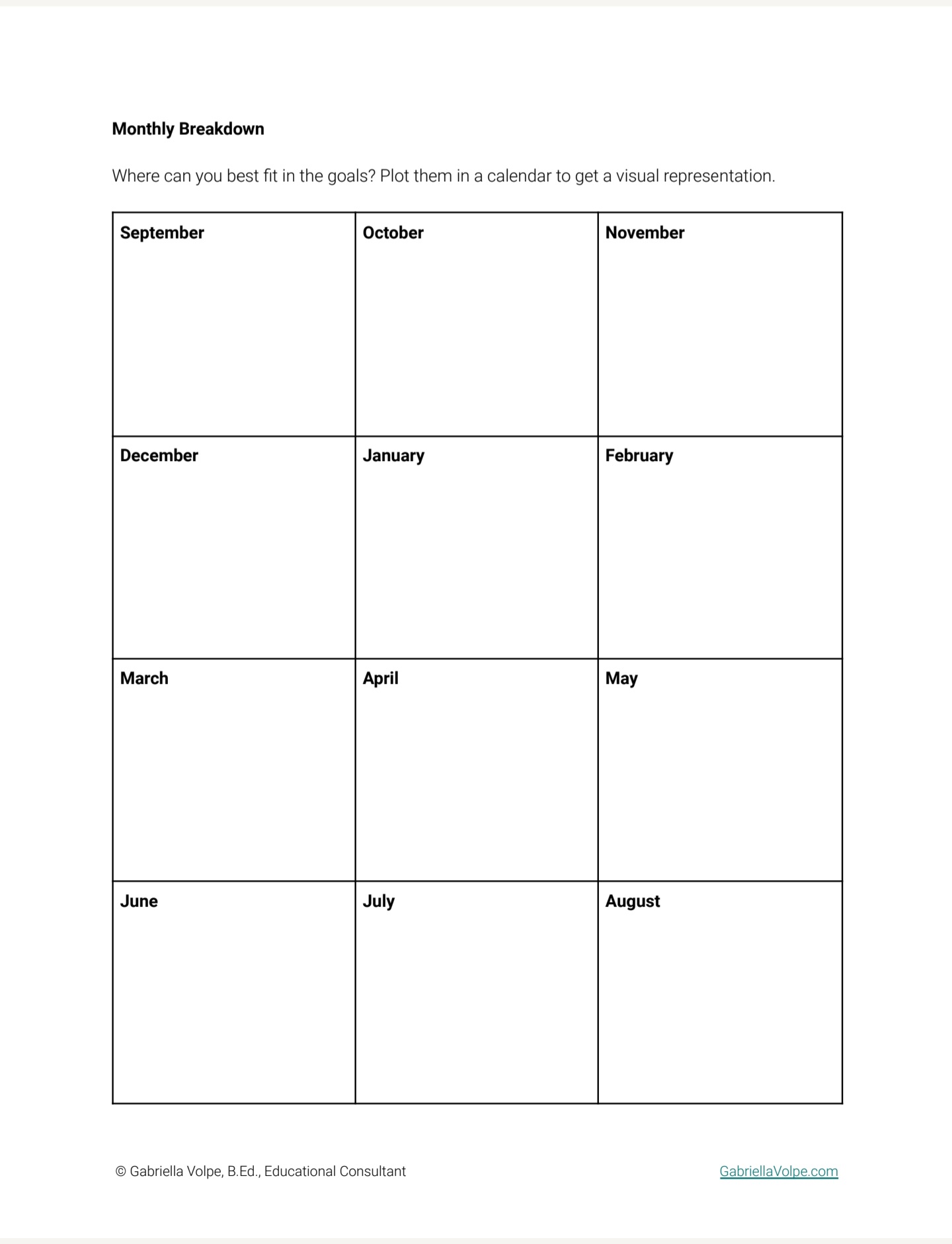
You don’t need to stick to monthly plans. Maybe you prefer quarterly planning? Make the calendar work for you!
How to use the planner
Parents: As a home educator, you can use the goal-setting plan in accordance with the yearly planning ideas I have outlined here.
If your children attend a conventional school or are engaged in distance learning, you can set broad goals with each child, your entire family, or yourself as an individual who is also growing and learning!
Professionals: Use the template to help you think about what you will broadly focus on this year with your students and clients. Use this for an individual child or a group and for your professional development goals, too!
Download the FREE Yearly Goal Setting Planner here
Related articles:
Get more resources like this one
Sign-up to my newsletter and I’ll send you email updates regarding education, accessibility, and disability justice.
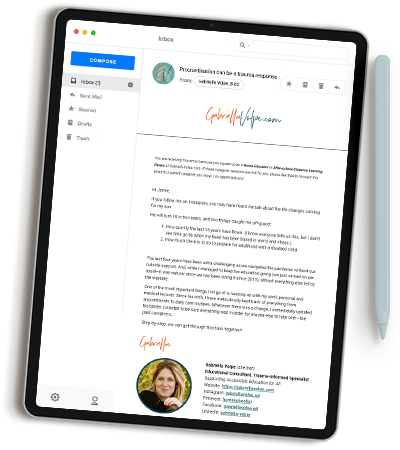
By signing up for email alerts, you agree to receive updates and promotions from me. You can unsubscribe at any time.

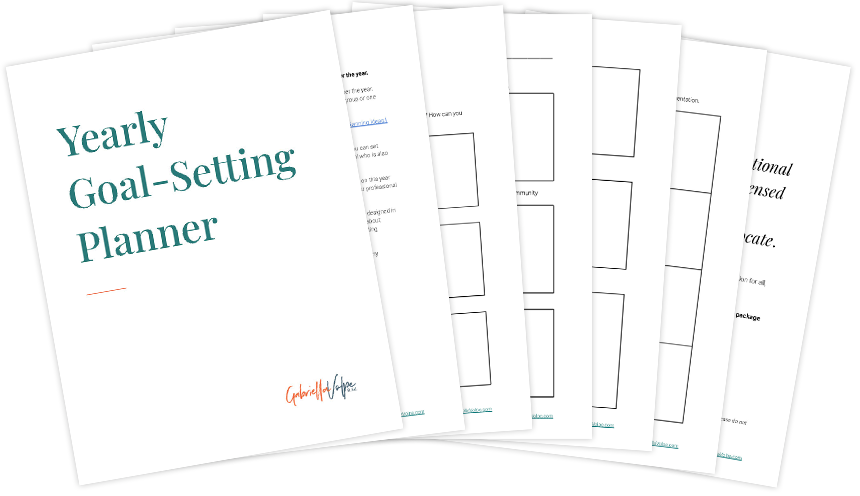
0 Comments